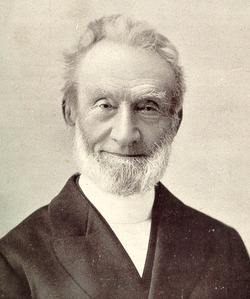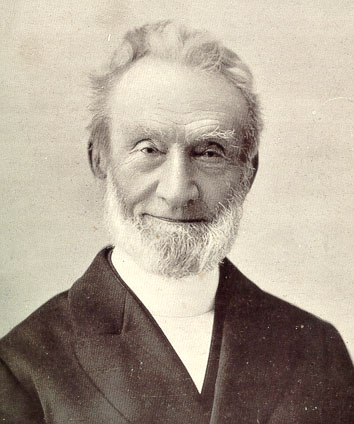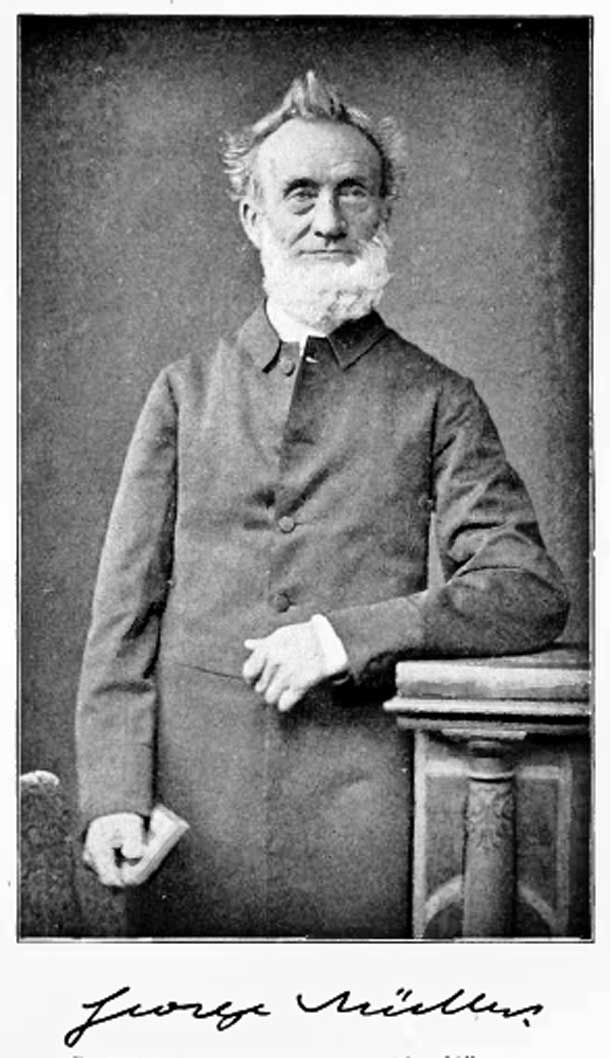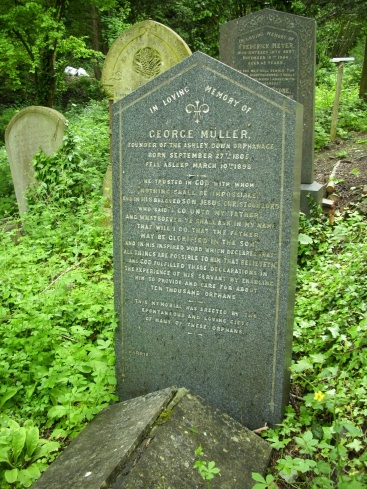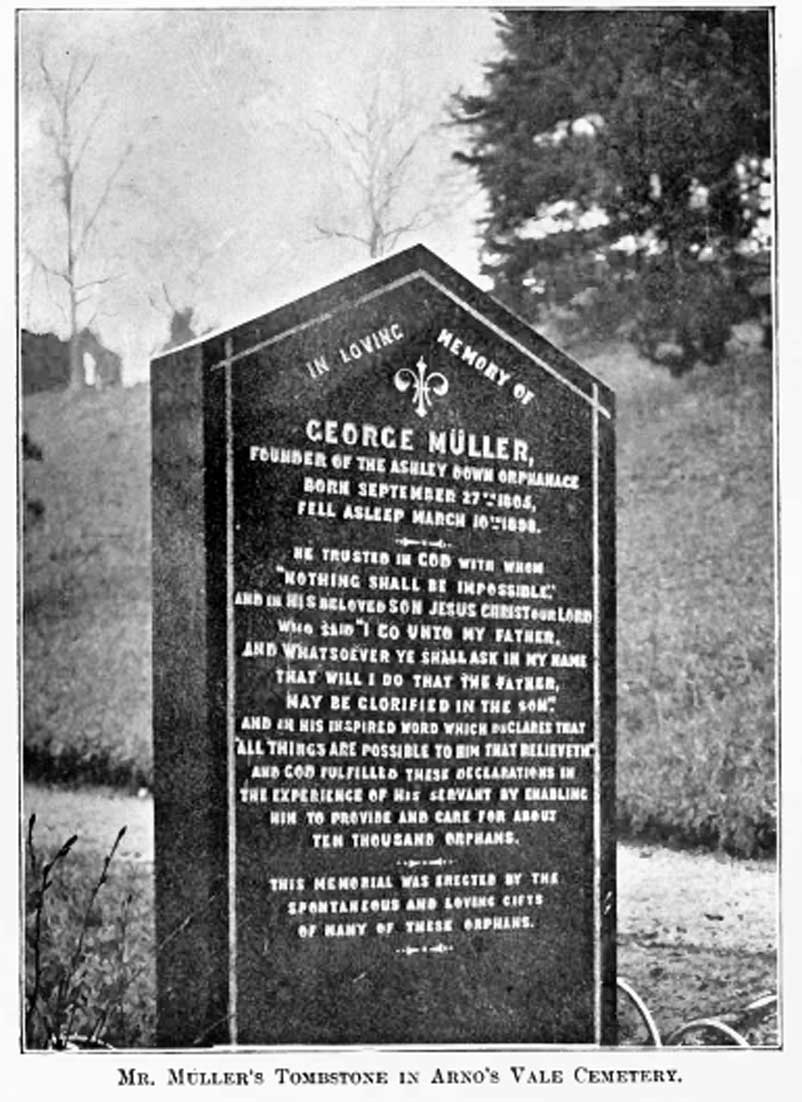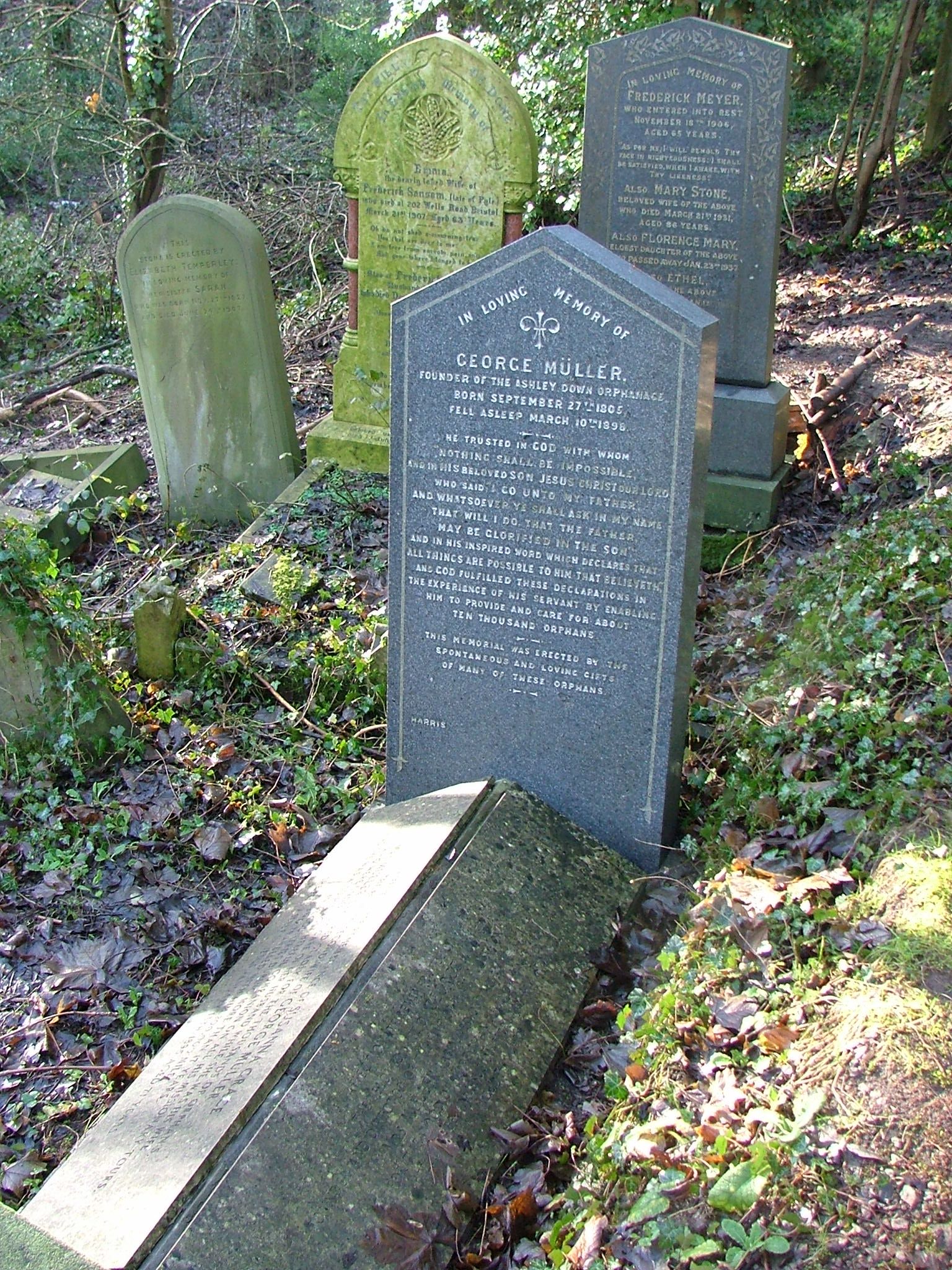George was born in Kroppenstaedt, Prussia, now Kroppenstedt, Germany, as Johann Georg Ferdinand Müller. His parents were Johann Friedrich Müller and Sophie Eleanor Haase. George had a brother named Friedrich Wilhem Müller. He also had a half brother named Franz "Frank" Müller. George's early years were full of drinking, stealing, gambling and lying. At sixteen he was sent to prison for defrauding a hotel-keeper.
Things turned around for George when a friend from the University of Halle, where George's father sent him to study divinity, invited him to a prayer meeting. He was welcomed there and began attending regularly. After seeing a man pray on his knees he was convinced he needed salvation and stopped his sinful way of life and was called to be a missionary.
George married Mary Groves on 7th October 1830 in St David's Church, Exeter. They had four children:
a stillborn child (9 Aug 1831)
Lydia (b. 17 Sep 1832 d. 10 Jan 1890)
Elijah (b. 19 Mar 1834 d. 25 June 1835)
a stillborn child (12 Jun 1838)
He saw the great awakening of 1859 which he said "led to the conversion of hundreds of thousands." He did follow up work for D. L. Moody, preached for Charles Spurgeon, and inspired the missionary faith of Hudson Taylor.
His fellow worker, Henry Craik, died on January 22, 1866, followed by the death of his wife on February 6, 1870. They were married 39 years. She was 72 and had suffered from rheumatic fever. James Wright married Müller's daughter, Lydia in 1871 and also replaced Craik as his associate. George only saw one of his children, Lydia, grow to adulthood. Lydia Mueller married James Wright who succeeded Mueller as the head of the Institute. Sadly, Lydia died from influenza while her father was on a trip to India. Nineteen months after Mary died, George remarried to a woman 13 years his junior named Susannah Grace Sangar.
George had a great aptitude for languages and was able to preach in English, French, and German. He was also a man of prayer. He prayed for everything and expected God to answer his prayers. He never asked for donations. He was never in debt. He first came to Bristol to preach in Bethesda Chapel and it was from this visit that he saw the plight of many orphans there thus, he founded the now famous Müller Orphanage. He cared for over 10,000 orphans in his life. On one occasion they sat down to eat and there was no food in the house. George prayed. A knock came on the door from a baker who had freshly made loaves of bread to feed everyone. The milkman also gave them milk because his cart broke down in front of the orphanage.
Besides managing 5 orphanages, George established over 117 schools which brought Christian education to over 120,000 children including orphans. In his nephew's book, Edward Groves describes how he was summoned to his uncle George's room on the morning of his death, "Having just drunk a glass of water, he laid himself down and apparently without a struggle or spasm of pain, gently breathed his last". He was buried by the side of his two wives.
After George's death, his work was continued by The George Müller Foundation, which was renamed The George Müller Charitable Trust on 1st March 2009.
George was born in Kroppenstaedt, Prussia, now Kroppenstedt, Germany, as Johann Georg Ferdinand Müller. His parents were Johann Friedrich Müller and Sophie Eleanor Haase. George had a brother named Friedrich Wilhem Müller. He also had a half brother named Franz "Frank" Müller. George's early years were full of drinking, stealing, gambling and lying. At sixteen he was sent to prison for defrauding a hotel-keeper.
Things turned around for George when a friend from the University of Halle, where George's father sent him to study divinity, invited him to a prayer meeting. He was welcomed there and began attending regularly. After seeing a man pray on his knees he was convinced he needed salvation and stopped his sinful way of life and was called to be a missionary.
George married Mary Groves on 7th October 1830 in St David's Church, Exeter. They had four children:
a stillborn child (9 Aug 1831)
Lydia (b. 17 Sep 1832 d. 10 Jan 1890)
Elijah (b. 19 Mar 1834 d. 25 June 1835)
a stillborn child (12 Jun 1838)
He saw the great awakening of 1859 which he said "led to the conversion of hundreds of thousands." He did follow up work for D. L. Moody, preached for Charles Spurgeon, and inspired the missionary faith of Hudson Taylor.
His fellow worker, Henry Craik, died on January 22, 1866, followed by the death of his wife on February 6, 1870. They were married 39 years. She was 72 and had suffered from rheumatic fever. James Wright married Müller's daughter, Lydia in 1871 and also replaced Craik as his associate. George only saw one of his children, Lydia, grow to adulthood. Lydia Mueller married James Wright who succeeded Mueller as the head of the Institute. Sadly, Lydia died from influenza while her father was on a trip to India. Nineteen months after Mary died, George remarried to a woman 13 years his junior named Susannah Grace Sangar.
George had a great aptitude for languages and was able to preach in English, French, and German. He was also a man of prayer. He prayed for everything and expected God to answer his prayers. He never asked for donations. He was never in debt. He first came to Bristol to preach in Bethesda Chapel and it was from this visit that he saw the plight of many orphans there thus, he founded the now famous Müller Orphanage. He cared for over 10,000 orphans in his life. On one occasion they sat down to eat and there was no food in the house. George prayed. A knock came on the door from a baker who had freshly made loaves of bread to feed everyone. The milkman also gave them milk because his cart broke down in front of the orphanage.
Besides managing 5 orphanages, George established over 117 schools which brought Christian education to over 120,000 children including orphans. In his nephew's book, Edward Groves describes how he was summoned to his uncle George's room on the morning of his death, "Having just drunk a glass of water, he laid himself down and apparently without a struggle or spasm of pain, gently breathed his last". He was buried by the side of his two wives.
After George's death, his work was continued by The George Müller Foundation, which was renamed The George Müller Charitable Trust on 1st March 2009.
Inscription
In Loving Memory of
George Müller
Founder of the Ashley Down Orphanage
Born September 27th 1805
Fell asleep March 10th 1898
He trusted in God with whom
Nothing shall be impossible
And in His beloved Son Jesus Christ our Lord
Who said I go unto My Father
And whatsoever ye shall ask in My name
That will I do that the Father
May be glorified in the Son
And in His inspired word which declares that
All things are possible to Him that believeth
And God fulfilled these declarations in
The experience of His servant by enabling
Him to provide and care for about
Ten thousand orphans
This memorial was erected by the
Spontaneous and loving gifts
Of many of these orphans
